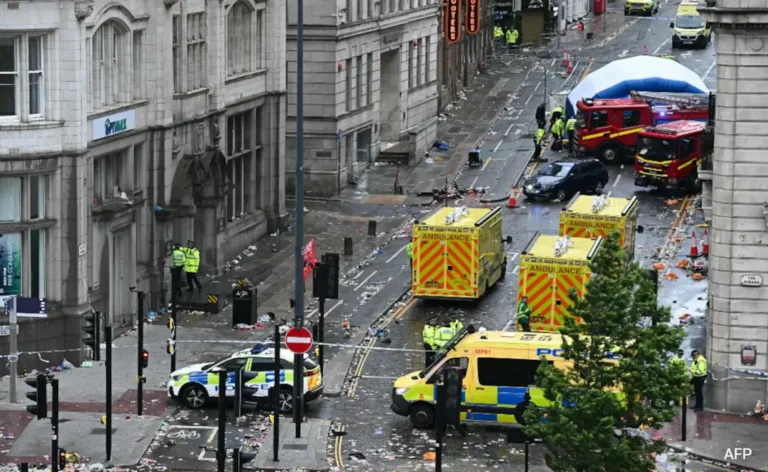
May 17, 2025 |Yemen
In a surprising increase in violence in the Middle East, Israel launched a massive air strike on Houthi-controlled ports of Yemen on Friday, causing tremendous damage. This strike comes shortly after missile strikes by Houthi rebels into Israeli airspace and represents a new and dangerous phase in the ongoing regional conflict.
Israel Defense Minister Israel Katz confirmed the operation, announcing that the Israeli Air Force targeted major Houthi bases in the rebel-held Hudaydah and Salif ports. The strike did significant damage to the Houthis’ military infrastructure, according to Katz.
“This is a clear message to the Houthi terrorist organization,” Katz said in a statement. “If they continue to launch missile attacks against Israel, they and their leaders will bear the consequences. Just as we’ve pursued Hamas leaders across Gaza, Beirut, and Tehran, we will not hesitate to strike Abdul Malik al-Houthi in Yemen.” He added that the action was part of Israel’s broader defense doctrine, which targets not only terrorist operatives but also their logistical and operational backbones. The airstrike, Katz added, was a “preemptive and defensive action to safeguard Israeli citizens.”
Israeli Prime Minister Benjamin Netanyahu hailed the military strike, describing it as a “successful and necessary measure” to deter continued aggression. In an address to the media on Friday evening, Netanyahu made mention of Israeli pilots having successfully struck two large Houthi bases. He emphasized that the Houthis must understand Israel will not tolerate threats to its security, and any infrastructure or leadership that supports attacks on the country will be dealt with severely.
Netanyahu also pointed to Iran as the mastermind behind the Houthis’ increasing aggression. According to him, the Houthis are simply pawns in a broader Iranian strategy to destabilize the region and undermine Israel’s security. He reiterated that Israel is prepared to take all necessary steps to protect its citizens, no matter where the threats originate. Tehran’s proxies, he said, whether in Lebanon, Gaza, or Yemen, would be held accountable.
Yemen’s Houthi-run Al Masirah TV confirmed the Israeli strikes, reporting that multiple explosions were heard in Hudaydah, a strategic Red Sea port city. Eyewitnesses in the region described hearing at least four large blasts, followed by heavy smoke rising from the coastal area. Although damage assessments are continuing, initial assessments indicate damage to port facilities, critical for the import of goods and humanitarian aid, while does highlights that the humanitarian crisis in Yemen is likely getting worse, in a civil war that has been ongoing for nearly a decade.
The Houthis claimed that their earlier missile attack on Israel was an act of solidarity with the Palestinians in Gaza, where the conflict between Israel and Hamas continues to rage. However, in a separate statement, the group promised to halt attacks on American ships, a gesture perhaps aimed at avoiding further U.S. intervention in the area.
The international community is taken aback. The United Nations has not yet made a formal comment, but many diplomats have cautioned that this clash is likely to light the flames of broader instability in a tinderbox region. Experts are concerned that an overt conflict between Israel and the Houthis would draw in other regional powers, such as Iran, Saudi Arabia, and the United States. Middle East analyst Karim Shafiq stated that this development significantly raises the stakes and that the region is now potentially facing a new front in the ongoing Israel-Iran proxy conflict.
While the United States has previously conducted strikes on Houthi positions to protect maritime trade routes in the Red Sea, it has so far refrained from directly supporting Israel in this latest round of attacks. However, Washington has expressed deep concern about Iran’s growing influence across the region.
Israel’s direct attacks on Houthi infrastructure constitute a major change in the Israeli military approach and an indication of increasing regionalization of the Israel-Iran proxy war. With the Houthis resisting and Israel committing to tougher actions, the threat of a wider war with multiple fronts is no longer a hypothetical situation.
At present, the situation is extremely fluid. If fighting continues, particularly with Iran looming in the background, the Middle East can quickly become embroiled in another ruinous cycle of violence—a cycle of consequences far beyond the immediate area.
FOR MORE NEWS VISIT QUESTIQA.COM




